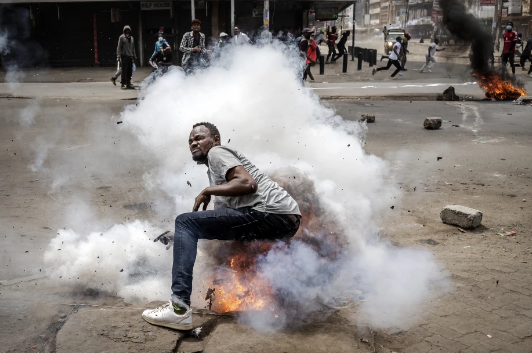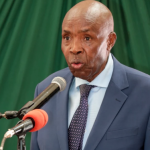July 7, known as SabaSaba, is a significant day in Kenya’s history. The day commemorates the nationwide protests that took place on July 7, 1990, demanding multiparty democracy.
These protests, organized by leaders such as Kenneth Matiba and Charles Rubia, marked the largest nationwide demonstrations in Kenya’s history. Both leaders had been arrested a few days before the protests, which resulted in over 20 deaths and thousands of injuries. Ultimately, the government of former President Daniel Moi succumbed to the pressure and allowed political pluralism.
Thirty-four years later, SabaSaba remains a historic day for Kenya. The 2024 SabaSaba day has taken a new direction, with organizers dedicating it to commemorating Kenyans killed during the recent anti-government protests.
According to data from the Kenya National Commission on Human Rights (KNCHR), at least 39 people were killed in nationwide protests that occurred from June 18 to July 1, 2024. Additionally, there were 32 reported cases of abductions and 627 arrests of protesters.
In response, a section of Kenyans has organized a march to honor those who lost their lives to gunshots and other forms of violence during the protests. Concurrently, a memorial concert is scheduled to be held at Uhuru Park grounds in Nairobi. Organized by activist Boniface Mwangi and others, the concert will feature top Kenyan artists and will honor those killed during the protests. The event is set to take place from 12 pm to 7 pm.
Siaya Governor James Orengo, one of the Young Turks leading the 1990 SabaSaba day, has praised the youthful population for upholding democracy on this historic day.
” I am happy because the young people of this country have decided to march for their lives. I support you! I support your clarion calls of saying NO to dictatorship, NO to tribalism in state appointments, NO to police brutality, NO to corruption. I urge you to remain vigilant and steadfast because freedom is coming,” Orengo said on Sunday.
ANTI-GOVERNMENT PROTESTS
What began as a protest against the Finance Bill 2024 has led Kenyans to present a list of demands to the Kenya Kwanza government. On June 26, President William Ruto, facing pressure from protesters, refused to sign the Finance Bill into law. This decision followed deadly protests during which Kenyans invaded Parliament after legislators voted in favor of the contentious bill.
In response to the protests and to address public concerns, President Ruto announced austerity measures aimed at reducing government expenditure. These measures include the elimination of budgets for the offices of the First Lady, the spouse of the Deputy President, and the Prime Cabinet Secretary. Additionally, the President announced the suspension of the appointment of Chief Administrative Officers (CASs) and the dissolution of 47 State Corporations with overlapping mandates.



